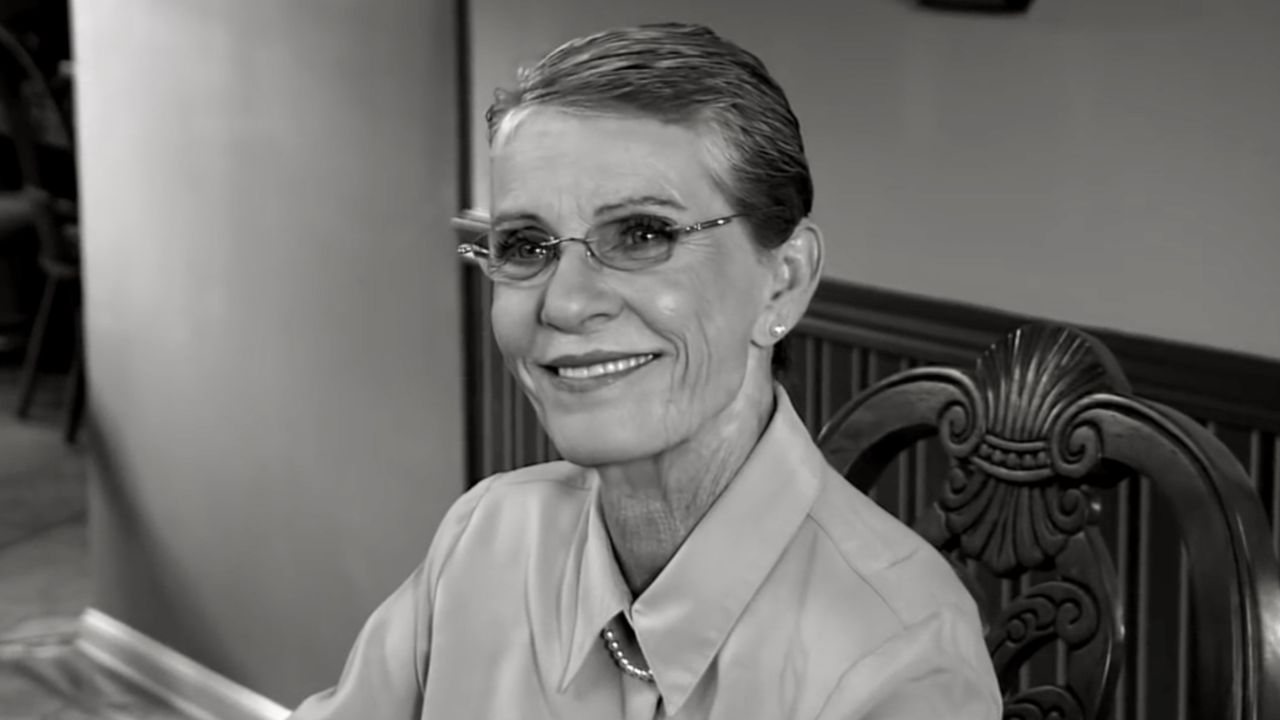
How Playing Helen Keller Helped Patty Duke Find Faith in Place of Fear
By Movieguide® Staff
Note: This story is part of our Faith in Hollywood series. For similar stories, click here.
Oscar-winning actress Patty Duke (1946-2016) graced the stage, the cinema and countless TV screens during a career that spanned more than half a century. Successful in her own right, Duke acknowledged that it was also through an experience in acting that she came to put her trust in God.
In her youth, one of her major stage roles paved the way to a deep and personal confrontation of fear. By finding faith, Duke said, she was able to diminish her fears, placing herself in God’s hands.
Specifically, she found herself struggling with an innate fear of becoming blind.
In 1959, the inaugural presentation of the Broadway play The Miracle Worker was performed. The play revolved around Anne Sullivan and her efforts to teach the young and rebellious Helen Keller. Duke, in her early teens, had been cast as the 10-year-old Helen.
In her own lifetime, the historical Helen Keller (who would die in 1968) made plenty of waves in society. Being blind, deaf and mute would seemingly have stifled her accomplishments. But Helen never let such supposed disadvantages put a halt to her dreams. She didn’t allow fear to step in and consume her. Instead, she was one of the first individuals to graduate from a university who also had the handicaps of being both blind and deaf.
However, Keller had a troubled childhood that was fraught with events that stripped her of many of the common means by which people comprehend and communicate. She lashed out against a world that seemed to never understand her. But Anne Sullivan helped Helen come to grasp hope.
For more than 700 showings, a young Duke portrayed the range that the flustered Helen experienced in her abnormal education. At first, the girl thought the role would be an exciting one. But soon it dawned on her that a terror lurked in her consciousness about the hypothetical scenario of being blind – hypothetical, at least, for Duke.
For Helen, it had been all too real.
“Part of the fear was because of the big fight scene in the play,” Duke would later tell in a reflection for Guideposts Magazine. “It was full of violence. The blind Helen is like a wild little savage. She does everything to oppose the efforts of her teacher, Annie Sullivan.”
But the violence wasn’t the only thing that started to impress itself on Duke’s mind.
Several of the other girls involved in the Broadway play were, in fact, quite blind. (A similar situation occurred in making the modern movie A QUIET PLACE, in which the deaf child actress Millicent Simmonds plays a deaf character.) Duke got along well with these girls, but on more than one occasion, she felt off-put by the dangers and apparent limitations that blindness brings with it.
Once, before Duke was about to go on, one of the blind girls came up to her. Patty noticed an abrasion on the girl’s head. The excuse she gave was a nasty incident with a clothing hook, and she said it wasn’t something to fret over.
The girl was very cheerful, but as Duke relates of the experience:
I pressed her hand very hard once, and shuffled on stage. My arms were outstretched before me and my hands ‘feeling’ my way. For now, I too was ‘blind.’ But it chilled me.
Duke went out and played the part of Helen. Though she retained her own gift of sight, there were those around her who were, like the historical Helen, very much in the dark.
The subject of blindness, and her presumed anxiety over it, was something Patty opened up about with those she was closest to.
As Duke writes:
One night I asked my mother about blindness. She said not to worry about it because sometimes God takes something away with one hand, then He gives with the other. The blind often see things more clearly than people with perfect eyes.
Unfortunately, her mother’s response didn’t quite bring the clarity or peace of mind that she sought. Her discomfort with the idea of blindness persisted. Yet, she saw that the blind girls she worked with on The Miracle Worker were completely capable of happiness and contentment, despite the lack of seeing the visible world around them.
She recollects that once, on the day before Easter Sunday, there was an egg hunt at the theater. The blind girls took part and, to keep the stakes on an even playing field, “the sighted children were blindfolded.”
Confused and dismayed after she was blindfolded, Duke found it hard to actively participate in the hunt. But her blind friends came to her aid, taking her by the hand, and leading her in the dark. Here were the blind leading the blind.
Duke’s outlook on blindness and, more importantly, on faith in general took a new turn when she spoke to the Rosses. Mr. and Mrs. John Ross functioned as her acting coaches for much of her early career. But to Duke, they were “like second parents.”
One evening, following the play, Mrs. Ross, feeling that something was off, asked Duke if anything was wrong. At first, the young actress evaded the question, but she eventually gave in.
As Duke recalls:
Mrs. Ross took my hand. I blurted it out, all about my blind friend and the bruises on her face and everything that happened in the games and the egg hunt and how I wouldn’t want to live if I ever became blind.
Her mindset was one of despair at such a thought. Right then and there, Mr. Ross posited Helen Keller as a role model. He argued that for Duke to play her, she had to “get inside her.” Duke was called to understand the inner turmoil, and eventual peace, that Keller experienced. As she would later recall of this transformative moment:
“But how did she get rid of her fears?”
“She put herself in God’s hands,” Mr. Ross said simply.
“Why should she?” I asked.
“Because she knew that she was helpless to help herself. Helen Keller was desperately afraid, too, but she knew that if God, who created her, was a loving Father, He was surely going to help her if she asked Him to. And when she put herself in His care she found new strength.”
Mrs. Ross echoed the same sentiment as her husband, directing Patty to an inspiring quote from the mature Helen Keller:
“’We are never happy unless our hearts are filled with the sun which never dissolves into gloom. God is that sun, and if our faith in Him is strong, whether we are blind or seeing, He will somehow reveal our powers and brighten the darkest days with His divine beams.’”
Through her encounter with her portrayal of Keller, Duke realized that the strength and courage to continue to live, no matter the circumstances, comes from a living faith in God. It is He who can dispel and disarm those things that endanger our peace.
The Miracle Worker was eventually adapted for the screen, with a cinematic release in 1962 where Duke once again portrayed the young Helen Keller – a flesh and blood woman whose faith showed Duke how to place her trust in God.
“Therefore do not be anxious about tomorrow, for tomorrow will be anxious for itself. Let the day’s own trouble be sufficient for the day” (Matthew 6:34).
Questions or comments? Please write to us here.



 - Content:
- Content: 

